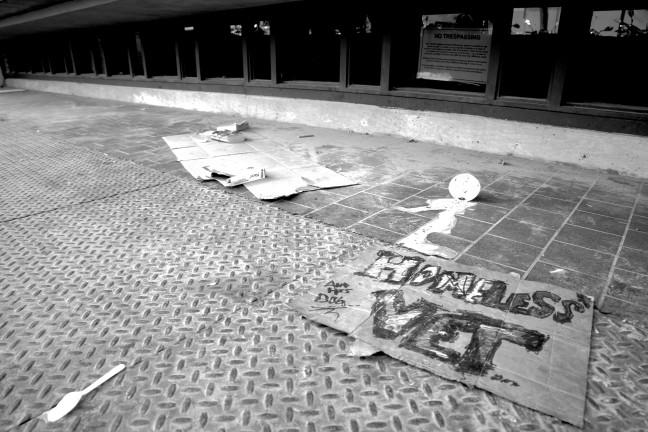Being homeless in any city is a challenging and often treacherous state. The life of any homeless individual is riddled with a multitude of stresses — where to eat, where to sleep and where to find shelter amid unforgiving weather. More often than not these problems are exacerbated by an urban environment.
Considering the variety of daily challenges burdening America’s homeless populations, it comes as no surprise that healthcare often takes a backseat to seemingly more pressing and immediate needs.
Madison’s homeless population is no exception to this unfortunate reality, and with roughly 2,400 people on the streets on any given night, the city faces a formidable challenge in ensuring that these individuals are cared for.
Homeless patients are rarely seen in traditional healthcare settings. This absence is likely due to stigmatization surrounding homelessness, which naturally leads many homeless individuals to feel unwelcome in healthcare facilities.
Winter is right around the corner, heightening need for homelessness support
So-called “street medicine” programs aim to combat this problem by delivering basic care to homeless individuals via backpack and mobile care units. Street medicine initiatives aim to reach out to the homeless population where they are and to forge relationships with people with the eventual goal of connecting them with more extensive services such as housing.
Joy Fernandez de Narayan, a nurse practitioner and director of Atlanta’s Mercy Care Street Medicine Program highlighted the importance of forging personal connections with patients.
“When we’re coming out here to talk to people, we’re on their turf,” she said.
Programs like Mercy Care in Atlanta have been reaching out to patients for only a few years, while others have been in operation since the early ’90s. As of 2018, MACH OneHealth has provided Madison’s homeless residents with weekly street care services. Although the program only serves patients on Thursdays and covers specific routes throughout the city, OneHealth says it plans to expand its offerings in the near future to include more remote campsites and operate more hours per week.
Much like in Mercy Care’s program, efforts in Madison center around forging relationships between healthcare professionals and the homeless population, said Matt Julian, a social worker and employee at Unity Point Health – Meriter.
Madison stakeholders come together to address homelessness on State Street, downtown area
“I’m a friendly face in the community who tries to get them into the clinic,” Julian said.
Additionally, street care programs provide homeless individuals with a sense of dignity through social interaction which they might not commonly experience otherwise. Life on the streets is not only a hazardous existence but also quite a lonely one, filled with humility and sacrifice. Johnny Dunson, a frequent Mercy Street Care patient explained being able to interact with a psychiatrist or doctor even once a week can be life-changing.
“You gotta let someone know how you’re feeling, understand me?” Dunson said. “Sometimes it can be like behavior, mental health. It’s not just me. It’s a lot of people that need some kind of assistance to do what you’re supposed to be doing, and they do a wonderful job.”
Street medicine programs act as more than just a band-aid solution to the medical problems faced by the homeless — they act as a bridge between the less fortunate and traditional medical treatment. Caregivers such as those recently appointed in Madison and those working in cities like Atlanta are reaching out a helping hand to those who often have a hard time trusting those who offer to help. In many communities, these programs have evolved from a service that dispensed flu shots and clean socks into an invaluable resource for those most in need.
John Grindal ([email protected]) is a freshman studying computer science and neurobiology.














